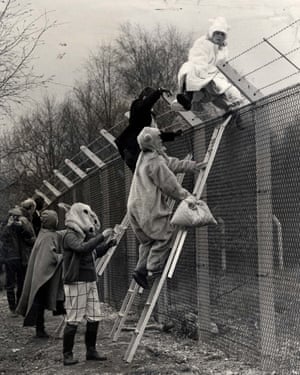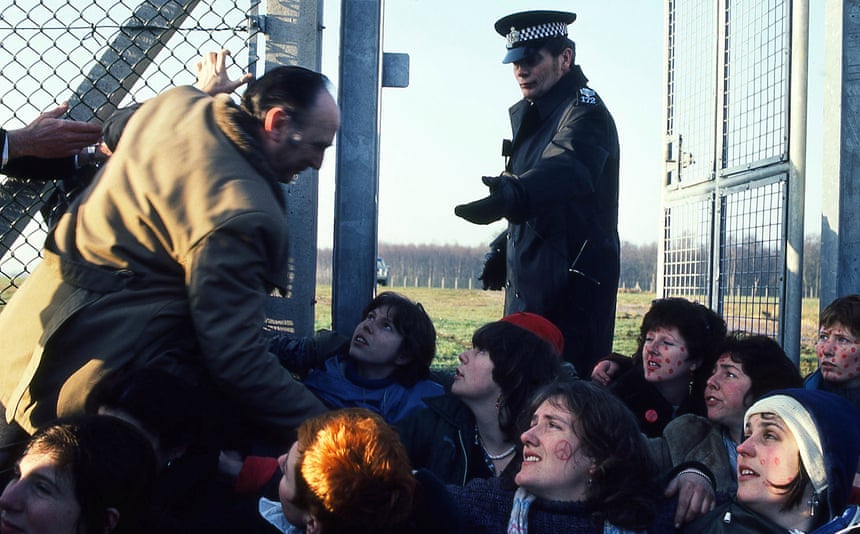On 22 March 1982, around 250 women block access to the airbase at Greenham Common in the UK. It is the first time the women’s peace camp has put non-violence to the test on a large scale, and 34 women are arrested. By the end of 1982, 30,000 women would arrive for the ’embrace the base’ protest. By 1983, over 100 similar peace camps are set up near nuclear sites around the world.
The Greenham Common Peace Camp started in 1981, when a peace march from South Wales arrived at the base outside Newbury. Four women chained themselves to the gate of the airbase, and the makeshift camp began. By March 1982 the camp had made the decision to become women-only: men could visit by day but could not stay. The camp worked as a collective, without leaders. Realising the media were seeking spokespeople, several women took on the role to protect others who did not want to speak.
“We didn’t want to abandon our principles and play to the notion of leaders for the sake of publicity, but it is hard to change old patterns of domination and control.”
From the coverage of the first blockade, support grew and a network was created to mobilise more women for mass protests. As well as huge ’embrace the base’ protests, there were smaller ones designed to capture the media’s attention. For example, breaking into the base dressed as rabbits during Easter.

The 1980s peace movement in the UK formed in response to an agreement by the UK to host US Cruise missiles in UK airbases. Combined with escalating Cold War tension, there was widespread concern that the missiles would either turn the bases into targets or would be used to trigger a nuclear war. Although the missiles did arrive at the camp, the cooling of the Cold War meant they were removed by 1991. The base – including the old missile silos – was used as the rebel base in Star Wars: The Force Awakens. Yes, really.
The collective nature of the Greenham Common peace camp means there are few written records. The Heroine Collective and Scary Little Girls are working on a project so more of this hugely important piece of feminist heritage is easy for everyone to learn about.
- Visit http://greenhamwomeneverywhere.co.uk/ to find out more about the project.
Like what we do?
- You can find us on BlueSky and Mastodon, where we post daily about the women that have – and are – making history.
- You can buy us a ko-fi to support the running costs of the server, books and Mags’ caffeine habit.

